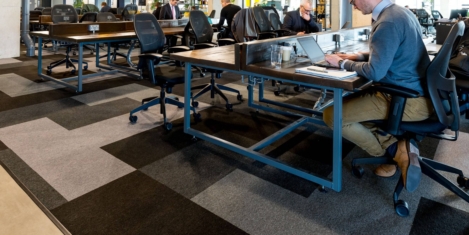July 26, 2018
MPs say more effort needed to tackle widespread sexual harassment in workplace
 Sexual harassment in the workplace is widespread and commonplace, with unwanted sexual behaviours such as sexual comments, touching, groping and assault seen as an everyday occurrence and part of the culture in workplaces, and the Government, regulators and employers are failing in their responsibilities to tackle the problem says an influential group of MPs. Employers and regulators have ignored their responsibilities for too long, found the Women and Equalities Committee following a wide-ranging six-month inquiry and often legal protections are not available to workers in practice. The Committee found that despite 40 percent of women and 18 percent of men having experienced unwanted sexual behaviour in the workplace there has been a failure to tackle unlawful behaviours, despite the Government’s obligations under international law. The report calls on Government to focus on five priorities to put sexual harassment at the top of the agenda for employers.
Sexual harassment in the workplace is widespread and commonplace, with unwanted sexual behaviours such as sexual comments, touching, groping and assault seen as an everyday occurrence and part of the culture in workplaces, and the Government, regulators and employers are failing in their responsibilities to tackle the problem says an influential group of MPs. Employers and regulators have ignored their responsibilities for too long, found the Women and Equalities Committee following a wide-ranging six-month inquiry and often legal protections are not available to workers in practice. The Committee found that despite 40 percent of women and 18 percent of men having experienced unwanted sexual behaviour in the workplace there has been a failure to tackle unlawful behaviours, despite the Government’s obligations under international law. The report calls on Government to focus on five priorities to put sexual harassment at the top of the agenda for employers.


















 Improved living standards, deflating pension pots and legal protection against age discrimination have all helped to nudge up the retirement age. The result is that for the first time since the Industrial Revolution five generations of employees are now working side by side. According to a new survey, two thirds of organisations (66 per cent) say that an age diverse workforce helped the company to have a more comprehensive skillset and knowledge base and more than seven in ten (71 per cent) felt that a multi-generational workforce brought contrasting views to their organisation. However, in the YouGov survey of middle market businesses commissioned by RSM, four in ten companies (41 per cent) said that a multi-generational workforce also increased the risk of conflict in the workplace.
Improved living standards, deflating pension pots and legal protection against age discrimination have all helped to nudge up the retirement age. The result is that for the first time since the Industrial Revolution five generations of employees are now working side by side. According to a new survey, two thirds of organisations (66 per cent) say that an age diverse workforce helped the company to have a more comprehensive skillset and knowledge base and more than seven in ten (71 per cent) felt that a multi-generational workforce brought contrasting views to their organisation. However, in the YouGov survey of middle market businesses commissioned by RSM, four in ten companies (41 per cent) said that a multi-generational workforce also increased the risk of conflict in the workplace. 


 The majority of employees are disappointed with their company’s lack of investment in technology, and despite the fact three quarters (76 percent) want to request flexible working – almost half still don’t have the option of working more flexibly, a new report from a technology company claims. According to the survey by technology company Ingram Micro Cloud UK, in collaboration with technology company Microsoft, despite the fact that Millennials and Centennials are often thought to be the driving force behind changing workplace practices – and are often derided in popular discourse for having unreasonable and unrealistic expectations – the calls for change are coming from all segments of the workforce. However, 85 percent of Millennials admit to procuring their own workplace technologies such as instant messaging, Skype, file hosting and sharing tools (all available from Ingram Micro Cloud) that aren’t supported or provided by their employer, which raises major security issues, acco.
The majority of employees are disappointed with their company’s lack of investment in technology, and despite the fact three quarters (76 percent) want to request flexible working – almost half still don’t have the option of working more flexibly, a new report from a technology company claims. According to the survey by technology company Ingram Micro Cloud UK, in collaboration with technology company Microsoft, despite the fact that Millennials and Centennials are often thought to be the driving force behind changing workplace practices – and are often derided in popular discourse for having unreasonable and unrealistic expectations – the calls for change are coming from all segments of the workforce. However, 85 percent of Millennials admit to procuring their own workplace technologies such as instant messaging, Skype, file hosting and sharing tools (all available from Ingram Micro Cloud) that aren’t supported or provided by their employer, which raises major security issues, acco.















July 11, 2018
A beauty industry veteran makes the case for corporate wellness
by Leena Jain • Comment, Wellbeing, Workplace design
More →